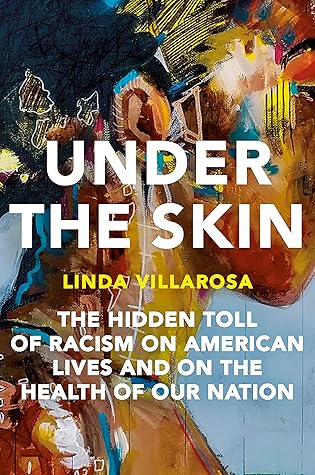More on this book
Community
Kindle Notes & Highlights
Within this largely well-meaning report lurked the assumption that Black people, individually and collectively, were irresponsible, careless, uneducated, and making thoughtless choices that led to this health crisis in the first place.
Like many of us who grew up in predominantly white spaces, I understood that I needed to be twice as good as everyone else to receive half as much respect,
I was most influenced by the story of my grandparents,
“If you really care about these issues and want to make a difference, you must not use race as a proxy for poverty or poverty as a proxy for race.
fear and avoidance of the health-care system, stress, the precariousness of the Black middle class, and the thoughtful heroism of individual provider/researchers like Dr. Freeman.
Less discussed, often ignored, but also proven is the link between hypertension and stressful environments and situations, including living with bias and discrimination. Though genetic explanations for poor Black health outcomes have been disproven, they linger in medical education and practice and in the media.
Black people were being harmed and traumatized in health-care settings and that living in America was hurting Black women of all classes and education levels.
Yes, something about being Black is creating a health crisis, and that something is racism. It is the American problem in need of an American solution.
more than a quarter of Black women meet their birth attendants for the first time during childbirth, compared with 18 percent of white women.
Because of the knee-jerk tendency to assume that health disparities were the end result of differences in class, not race, they were careful to compare subjects with similar income and insurance coverage. The report found rampant, widespread racial bias, including that people of color were less likely to be given appropriate heart medications or to undergo bypass surgery or receive kidney dialysis or transplants. Several studies revealed significant racial differences in who receives appropriate cancer diagnostic tests and treatments, and people of color were also less likely to receive the
...more
“Something about growing up in America seems to be bad for your baby’s birth weight.”
why in America Black infants are more than twice as likely as white babies to die before reaching their first birthdays.
the grandchildren of the Caribbean and African immigrant women were born smaller than their mothers had been at birth.
Those who experienced discrimination had a twofold increase in low birth weights. For those who reported discrimination in all three areas, the increase was nearly threefold. The researchers’ conclusion: low birth weights among African American women have more to do with the experience of racism than with race.
Short, infrequent bursts of this fight-or-flight response are normal, but when it happens again and again, it can turn deadly, eroding health and accelerating aging. Also, as the stressors pile up and feed
that people of color and the poor are more likely to live within one mile of the hundred most toxic areas of America.
Black Americans have long lived under tremendous emotional pressure in the face of bias and inequality, much of it sanctioned by the government and embedded in the structures and institutions of society since the earliest days of the country.
2018 study at the University of Pennsylvania’s Perelman School of Medicine found that police killings of unarmed African Americans have adverse effects on mental health among Black American adults who were not directly affected by the incident.
Untreated mental illness can make African Americans more vulnerable to substance abuse, homelessness, suicide, and homicide.
As I have laid out, the reasons for racial health disparities are threefold: long-standing discrimination in the institutions and structures of American society that has harmed and continues to harm Black communities, making them less “healthy”; racism in society that wears away the bodies of Black people and those from other groups who are treated poorly; and bias in health care that creates a system of unequal treatment.


